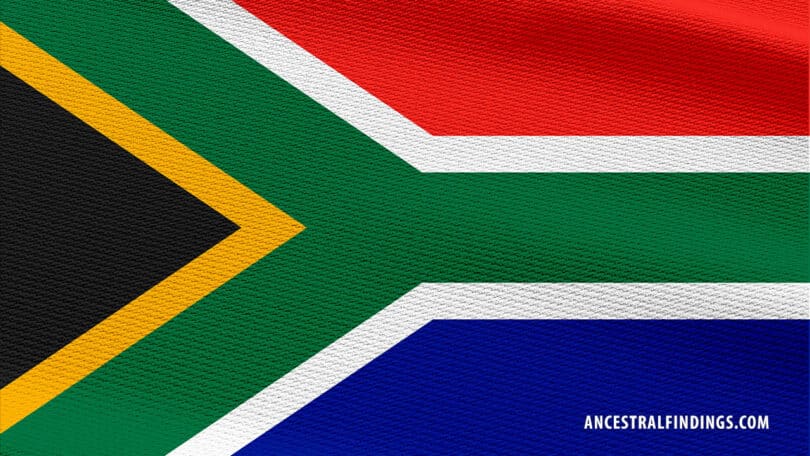South Africa has an extraordinary history and a complex blend of cultures, rewarding and challenging genealogical research here. Whether your ancestors were part of the indigenous communities, European settlers, or later immigrants, the journey to uncover your family’s roots in South Africa can lead you through various records and stories.
In this series, we’ll explore South Africa’s historical backdrop, why it matters for genealogical research, and the key resources available to help you trace your lineage.
Understanding South African History
To begin your genealogical journey in South Africa, it’s essential to grasp the key events and groups that shaped the country’s population. South Africa’s history stretches back thousands of years, with indigenous peoples like the Khoisan being among the earliest inhabitants.
European colonization began in the 1600s with the Dutch establishing the Cape Colony, which was followed by British control in the early 1800s. These colonists, along with enslaved people brought from other African regions and Asia, contributed to the mix of ethnicities and cultures that formed the foundation of the modern population. In the late 19th and early 20th centuries, the discovery of diamonds and gold spurred even more immigration from Europe and elsewhere.
Adding to the complexity is South Africa’s apartheid era (1948-1994), during which the government’s policies of racial segregation and oppression deeply affected the population and its records. Knowing these key historical points can help you understand the context in which your ancestors lived and the documents they left behind.
Key Resources for Tracing South African Ancestors
Navigating the genealogical landscape of South Africa requires a good understanding of what types of records exist, where they’re kept, and how to access them. Below are some of the most important resources to guide your search.
1. National Archives of South Africa
The National Archives of South Africa (NASA) is one of the most important sources for anyone conducting genealogical research. The archives contain a variety of records, including those related to births, deaths, marriages, estates, and property transactions. Estate papers are particularly interesting to genealogists, as they often contain detailed information about family members, their property, and other significant details that can help build your family tree.
To access these records, you can visit the archive repositories in various cities like Cape Town and Pretoria or explore their website for digitized documents.
2. Church Records and Baptismal Registers
Church records are a crucial resource for South African genealogy, as they often predate civil registrations. These include baptismal, marriage, and burial records. The Dutch Reformed Church, Anglican Church, and Methodist Church are some of the primary sources, as their detailed records cover much of the colonial period.
These records are particularly valuable for tracing families from the early Dutch and British periods, as churches often kept meticulous logs of members and their significant life events. In some cases, church registers may even include notes about occupation, place of residence, and family connections, offering valuable leads.
3. Civil Registration
South Africa introduced formal civil registration relatively late, around 1895. Before this, church records were the main source of births, marriages, and deaths. Civil registration has since expanded to cover many records that can help you locate vital information about your ancestors.
The Department of Home Affairs is responsible for civil records in South Africa, including more recent birth, marriage, and death certificates. Accessing these records often requires an application process, but their information is crucial for confirming details about family members.
4. Immigration and Emigration Records
As a country that has seen various waves of immigration, South Africa has rich records of people coming into and leaving the country. Starting with Dutch settlers in the 1600s, followed by British colonists and other European immigrants, these records provide details on ship passenger lists, settlers’ registers, and even early naturalization records.
The 1820 British Settlers, for instance, are well-documented, and many records exist to help descendants of these immigrants trace their roots. Likewise, South Africa saw the arrival of Indian laborers under British rule, and these immigration records provide valuable information for those tracing Indian ancestry.
5. Census and Voter Records
Census records in South Africa were not consistently kept for genealogical purposes, but some early censuses, dating back to the 19th century, do exist. These can offer insight into your ancestors’ households, including family members, occupations, and places of residence.
Voter rolls and electoral records also serve as an important source of genealogical information. Although they don’t provide as much detail as census records, they can still offer names, addresses, and occasionally other useful information about property ownership or social standing.
6. Military Records
Military conflicts, such as the Anglo-Zulu War, the Anglo-Boer War, and both World Wars, impacted many South African families. South Africa’s military records can provide clues about an ancestor’s service, including details about their rank, regiments, and sometimes even health and pension records.
Additionally, records from the concentration camps used during the Anglo-Boer War provide important information for descendants of those affected by this period.
7. Land Records and Deeds
Land ownership has played a significant role in South African history, and property records can be incredibly helpful in tracking family movements and connections. The Deeds Registry contains information about land ownership, transfers, and inheritances, revealing where your ancestors lived and insights into their social and financial status.
These records are available through South Africa’s various Deeds Offices, and many older records are preserved in the National Archives.
8. Online Databases and DNA Testing
While many traditional records still require in-person visits or applications, the rise of online genealogy databases has made accessing information from South Africa easier. Websites like FamilySearch.org and Ancestry.com offer growing collections of South African records, including civil registrations, church records, and estate papers.
DNA testing has also become a valuable tool for genealogists. With South Africa’s diverse ethnic background, DNA results can help confirm relationships, uncover previously unknown family tree branches, and provide clues about where your ancestors might have originated before arriving in South Africa.
Challenges in South African Genealogy
Like any country, South Africa presents unique challenges for genealogical research. The country’s multilingual heritage means that records may be written in Dutch, Afrikaans, English, or even indigenous languages. Additionally, records from certain periods, especially during apartheid, can be incomplete or difficult to access.
Another challenge is record loss due to historical conflicts, such as the Boer War, where many documents were destroyed. However, perseverance and careful research can help overcome these barriers.
Final Thoughts
South African genealogy offers rich and complex stories to uncover. You can confidently trace your family roots by understanding the country’s history and using key resources such as the National Archives, church and civil records, and online databases. With each discovery, you connect more deeply to the people who shaped your history and the history of South Africa itself.







